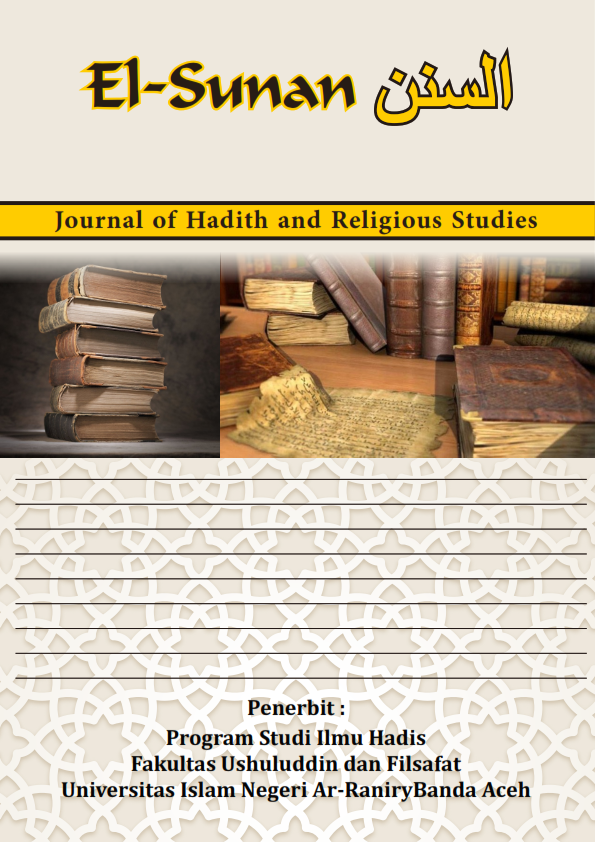The Legal Proportion of Bequests in Hadith And Islamic Economics: Implications For Family and Social Welfare
Keywords:
Bequest, Islamic Economic, Fiqh al-HadithAbstract
A bequest (waṣiyyah) is a noble act and a source of blessings in Islam, regarded as one of the enduring good deeds (ṣadaqah jāriyah). However, complications may arise when a bequest is made in favor of legal heirs, who already have designated shares in inheritance, including cases where the sole heir is a daughter. Such situations become contentious due to another hadith prohibiting bequests to legal heirs. This raises the question: What is the permissible extent of a bequest when the sole heir is a daughter? How should the hadith forbidding bequests to heirs be interpreted through the lens of Islamic economic jurisprudence, and what are its implications for family and community economics? This study employs a qualitative methodology using both fiqh al-ḥadīth and Islamic economic approaches. The findings reveal that a bequest is considered excessive if it exceeds one-third of the estate. The primary hadith governing this ruling is ṣaḥīḥ and included in the authoritative Kutub al-Tis‘ah. Conversely, the hadith prohibiting bequests to heirs without their consent is graded as ḥasan li-ghayrih and lacks the criteria for ṣaḥīḥ classification according to Imam al-Bukhārī, although it is transmitted through multiple chains. In cases where the sole heir is a daughter, she receives her prescribed share and may also benefit from the residual portion (ʿaṣabah) within the permissible one-third bequest. This ruling reflects the Prophetic vision to uphold justice in economic distribution and protection of vulnerable groups, such as daughters, aligning with the objectives of the Sharīʿah (maqāṣid al-sharīʿah), particularly the preservation of wealth (ḥifẓ al-māl) and lineage (ḥifẓ al-nasl). Islamic economics is founded not on socialism or capitalism, but on five core values: tawḥīd (monotheism), nubuwwah (prophethood), khilāfah (vicegerency), ʿadl (justice), and maʿād (accountability in the hereafter). Within this framework, the prohibition of bequests to heirs can be reinterpreted as an opportunity to strengthen economic stability in families and society, especially in special cases such as children with disabilities, adopted children, foster parents, and others.
References
‘Aini, Badruddin Abi Muhammad Mahmud bin Ahmad al-, ‘Umdatu Qari Syarah Shahih Al-Bukhari (Dar al-Fikr)
‘Asqalāni, Ahmad bin ‘Ali bin Hajar Abu al-Fadl al-, Fath Al-Bāri Syarah Shahih Al-Bukhari (Dar al-Ma’rifah)
Abu Abdurrahman Ahmad bin Syu’aib bin ‘Ali al-Kharᾱsᾱni, an-Nasᾱ i, Sunan Al-Syaghir LilNasᾱ I, 2nd edn (Penerbit Maktabah al-Muthabu’ᾱt al-Islᾱmiyah)
Ad-Darimi, Abu Muhammad ‘Abdullah bin ‘Abdurrahman bin al-Fadl bin Bahram bin ‘Abdu as-Shomad, Musnad Ad-Darimi, 1st edn (Dar al-Mughni lilnasyr wa at-Tauzi’i al-Mamlukah al-‘Arabiyah)
Ad-Daruquthni, Abu al-Hasan ‘Ali bin ‘Amr bin Ahmad bin Mahdi bin Mas’ud bin an-Nu’man bin Dinar al-Baghdadi, Sunan Ad-Daruquthni (Muasasah al-Risalah, 2004)
Ad-Dhahak, Muhammad bin ‘Isa bin Saurah bin Musa bin, At-Tirmidzi, Al-Jami’ Al-Kabir-Sunan at-Tirmidzi (Dar al-Magrib al-Islamiyah)
Al-Andalusi, Muhammad bin Ahmad bin Muhammad bin Rusyd al-Qurtubi, Bidayah Al-Mujtahid Wa Nihayah Al-Muqtashid.
Al-Ju’fi, Muhammad bin Isma’il Abu ‘Abdullah al-Bukhari, Al-Jami’ Al-Musnad Al-Shahih Al-Mukhtasar Min Umuri Rasulullah Saw Wa Sunanihi Wa Ayamihi/Shahih Al-Bukhari, 1st edn (Dar Thawq al-Najah)
Al-Kahlᾱnī, Muhammad bin Ismᾱ’il, Subul Al-Salam (Maktabah al-Ma’arif, 2006)
Al-Madani, Malik bin Anas bin Malik bin ‘Aamir al-Ashbahi, Al-Muwatha’, 1st edn (Muasasah Zaayad bin Sulthan, 1425H/2004M.)
Al-Maqdisi, Syaikh al Hafidz Abdulghani, Umdatul Ahkam (al-Maktabah al-Islamiyah)
Al-Mubarukufi, Abu al- ‘Ala Muhammad ‘Abdu al-Rahman bin ‘Abdu al-Rahim, Tuhfatu Al-Ahwadz Syarah Jami’ at-Tirmidzi (Bait al-Afkar ad-Dauliyah)
Al-Naisaburi, Muslim bin al-Hajaj Abu al-Hasan al-Qushairi, Al-Musnad Al-Shahih Al-Mukhtasar Binaql Al- ‘Adl Ila Rasulullah Saw (Dar Ihya al-Turats al- ‘Arabi)
Al-Nawawi, Mahyuddin Abu Zakaria Yahya bin Syarf bin Muri, Al-Minhaj Fi Syarh Shahih Muslim Bin Al-Hajaj (Bait al-Afkar ad-Dauliyah)
Al-Sayuthi, Jalaluddin Abdu al-Rahman bin Abu Bakar, Syarah Sunan Ibn Majah (Bait al-Afkar ad-Dauliyah)
Al-Sijistani, Abu Dawud Sulaiman bin al-Ash’ats bin Ishaq bin Bashir bin Shadad bin ‘Amru al-Azdi, Sunan Abu Dawud (al-Maktabah al- ‘Asyriyah)
Al-Syaibani, Abu Abdullah Ahmad bin Muhammad bin Hanbal bin Hilal bin Asad, Musnad Al-Imam Ahmad Bin Hanbal, 1st edn (Muasasah al-Risalah)
Al-Yamani, Muhammad bin ‘Ali bin Muhammad bin ‘Abdullah asy-Syakani, Nailu Al-Authar, 1st edn (Dar al-Hadis, 1993)
Ash-Shiddieqy, T.M. Hasbi, Koleksi Hadis-Hadis Hukum (Pustaka Rizki Putra, 2001)
Hidar, Muhammad Asyraf bin Amir bin ‘Ali bin, ‘Aun Al-Ma’Bud ‘Ala Syarhi Sunan Abu Dawud (Dar Ibn Hazam, 2005)
Karim, Adiwarman A., Ekonomi Islam: Suatu Kajian Kontemporer (Gema Insani Press, 2003)
Musa, Ali bin ‘Adam bin, Syarah Sunan An-Nasa I, 1st edn (Kerajaan Arab Su’udiyah Mekah al-Mukarramah, 2003)
Rahman, Taufik, Hadis-Hadis Hukum (Pustaka Setia, 2000)
Yusuf, Abu Ishaq Ibrahim bin ‘Ali bin, Al-Muhazab Fi Fiqh Imam Asy-Syafi’i, 2nd edn (Dar al Kutub al Ilmiyah, 1995)
Downloads
Published
How to Cite
Issue
Section
License
Copyright (c) 2025 mahdalenanasrun nasrun

This work is licensed under a Creative Commons Attribution-NonCommercial-ShareAlike 4.0 International License.
- Authors retain copyright and grant the journal right of first publication with the work simultaneously licensed under an Attribution-NonCommercial-ShareAlike 4.0 International (CC BY-NC-SA 4.0) that allows others to share the work with an acknowledgment of the work's authorship and initial publication in this journal.
- Authors are able to enter into separate, additional contractual arrangements for the non-exclusive distribution of the journal's published version of the work (e.g., post it to an institutional repository or publish it in a book), with an acknowledgment of its initial publication in this journal.
- Authors are permitted and encouraged to post their work online (e.g., in institutional repositories or on their website) prior to and during the submission process, as it can lead to productive exchanges, as well as earlier and greater citation of published work.










